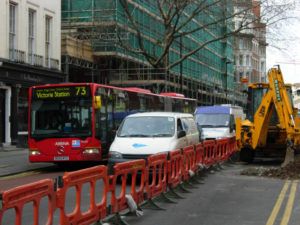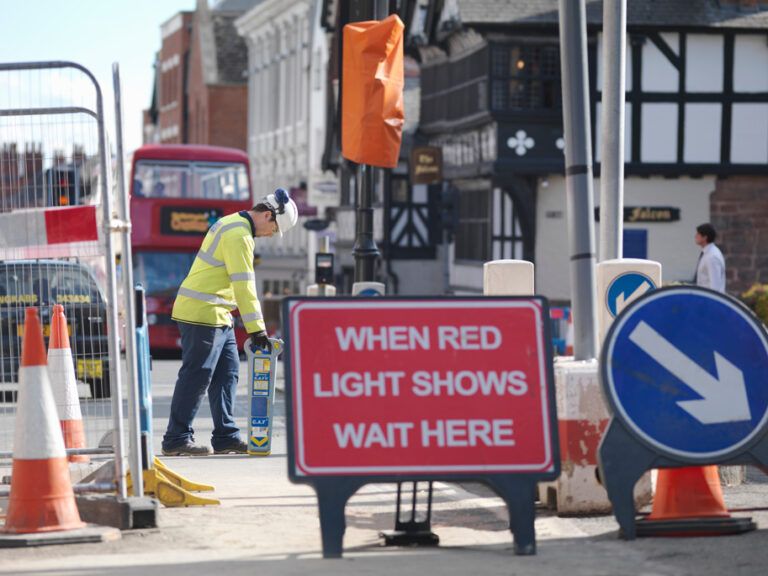Transport for London (TfL) has set out plans to make roadworks on the UK capital’s road network safer and less disruptive, by making changes to its pioneering Lane Rental scheme and introducing a new Roadworks Charter for utility companies.
The Lane Rental scheme, which has saved £100m (US$122m) of lost travel time since its introduction in 2012, allows TfL to charge utility companies a daily fee for digging up the busiest sections of London’s roads during peak travel periods. The scheme encourages companies to plan the works they need to carry out outside of the most sensitive times. All money raised from the scheme is reinvested in initiatives and innovations designed to reduce disruption caused by roadworks across the capital. In 2018-19, TfL invested £6.1m (US$7.5m) in London’s road network using funding raised through the scheme on a number of projects. These range from trials of a new low-noise, rapid pot hole repair system, to a technology innovation challenge where new products were developed capable of making roadworks smarter and safer.
 TfL’s proposed changes to the scheme are intended to better reflect how London’s roads are being used, with more Cycleways and some of London’s busiest footways being subject to charges. To support the Mayor’s Vision Zero ambitions, TfL propose to offer discounts to those that demonstrate high safety standards. Reductions are also offered where utility companies are improving and extending their assets to ensure that London’s infrastructure continues to support the capital’s growth. The new proposals include:
TfL’s proposed changes to the scheme are intended to better reflect how London’s roads are being used, with more Cycleways and some of London’s busiest footways being subject to charges. To support the Mayor’s Vision Zero ambitions, TfL propose to offer discounts to those that demonstrate high safety standards. Reductions are also offered where utility companies are improving and extending their assets to ensure that London’s infrastructure continues to support the capital’s growth. The new proposals include:
- Increasing the extent of the Lane Rental network so that charges would apply across 72% of the TfL Road Network, rather than the current 56% of the network;
- Introducing a charge of £350 (US$428) per day for works that impact on the busiest sections of pavement, mostly outside major transport hubs;
- Reducing the number of locations where the highest charges occur by 10%;
- Reducing the number of hours when charges would apply, incentivizing work at quieter times, such as during the evening;
- Offering discounts where companies meet strict safety standards.
TfL has also worked closely with the largest utility companies on a new Roadworks Charter, which sets out targets for all parties to make roadworks safer and less disruptive by 2021. Measures include sharing plans for works with each other in advance to see if they can be done at the same time, targets for improving safety performance and committing to reduce obstacles around works for vulnerable road users. Five companies, Thames Water, UK Power Networks, SGN, Cadent Gas and BT, have already signed up to the charter.
“Roadworks are a vital and unavoidable part of keeping the capital’s complex utilities in working order, but we’re fully aware that they can be a pain for people using the roads, as well as a cause of danger, congestion and toxic air,” said Glynn Barton, TfL’s director of network management. “We’re working very closely with the industry on schemes such as Lane Rental and our Roadworks Charter to reduce the impact of roadworks and to keep people moving safely around the capital.”






